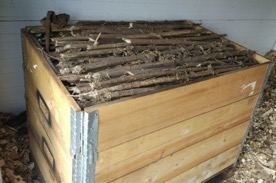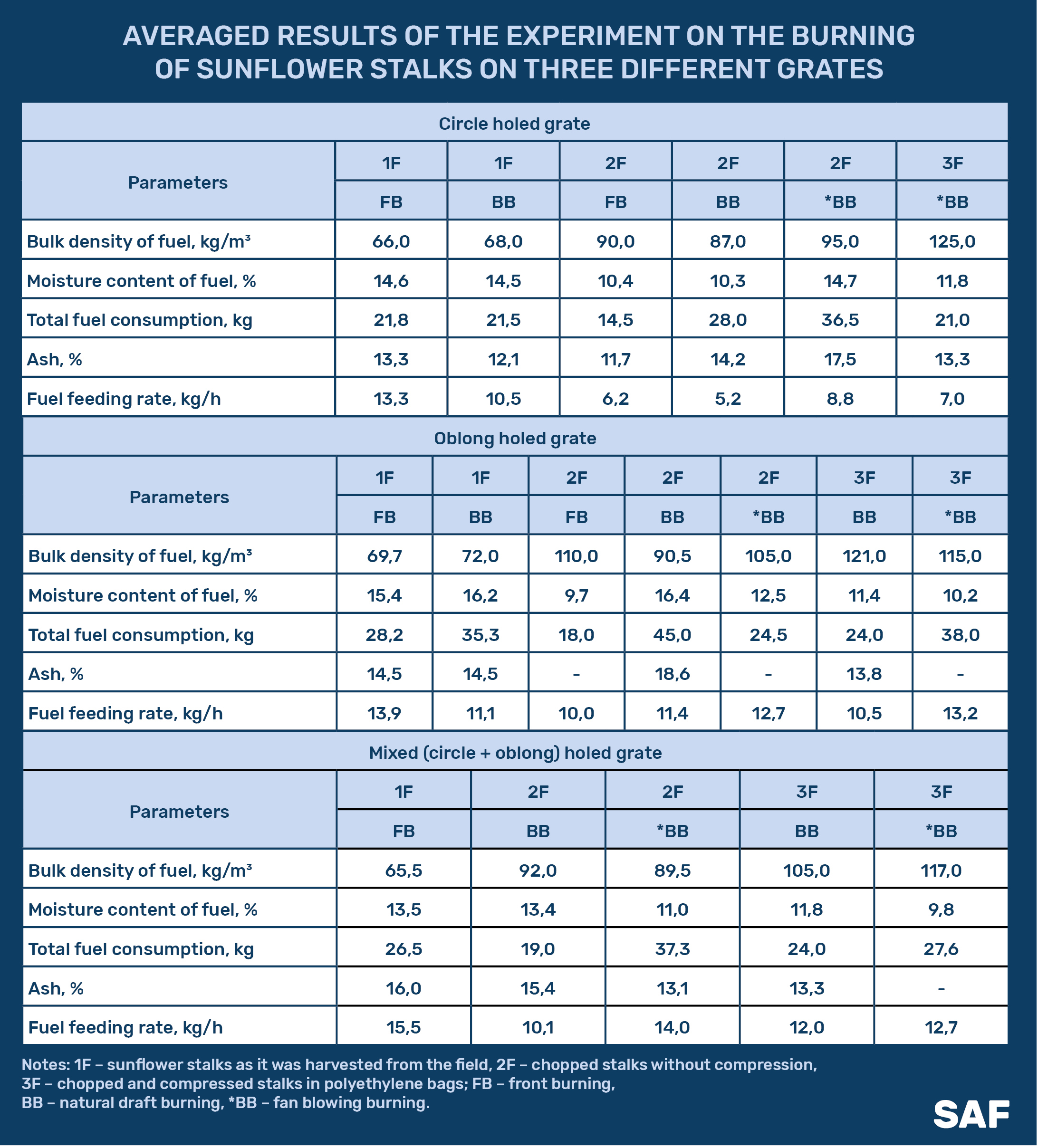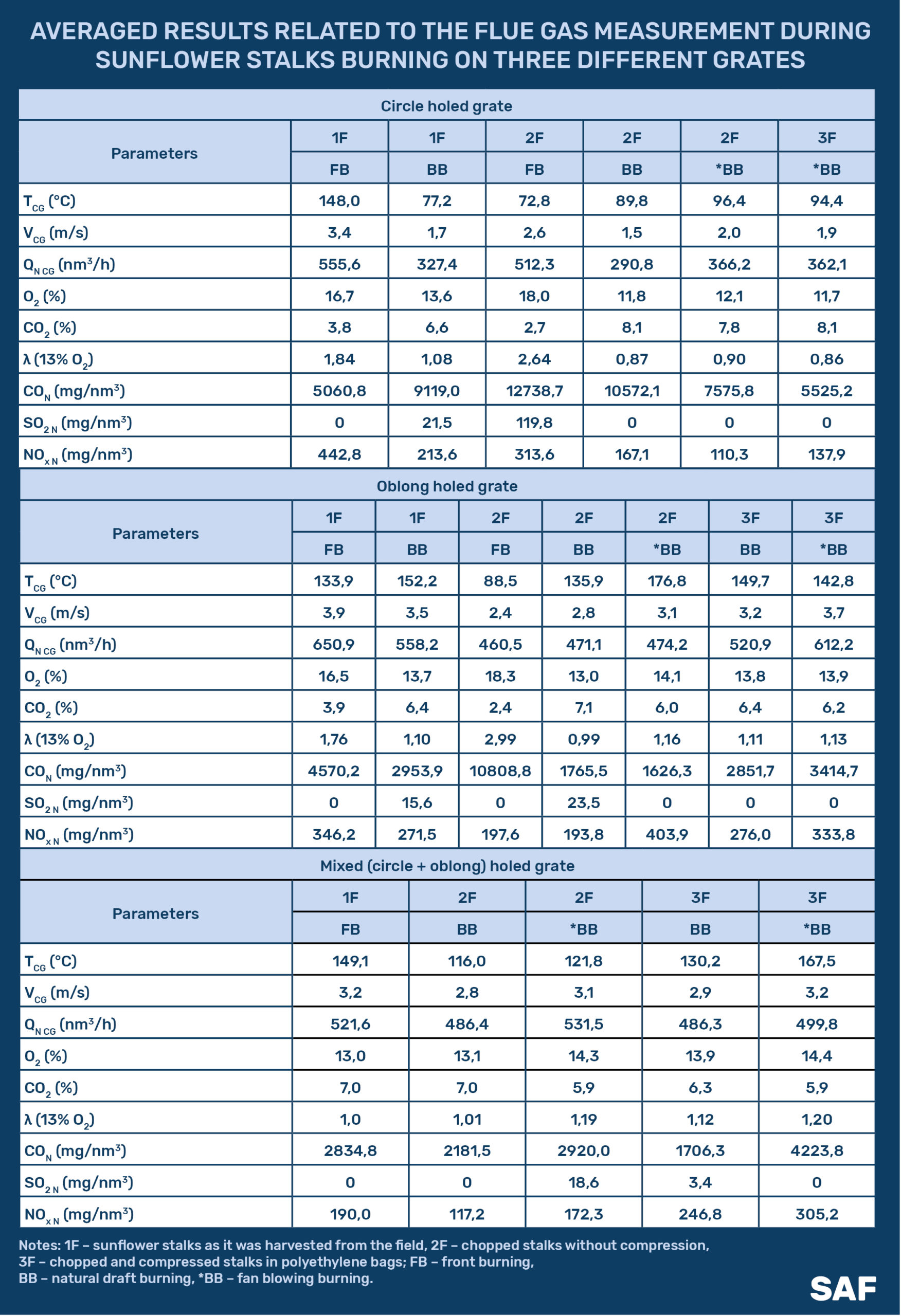In contrast to the significant use of sunflower husk for heat and electricity and the production of fuel briquettes and pellets from them, the number of examples of sunflower by-products processing into solid biofuels in Ukraine and other countries is still quite small. Sunflower by-products are mainly used in small quantities to supply the heat energy needs of agricultural producers and rural households. Sunflower cultivation is not widespread in many countries of the world, while in Ukraine this crop has significant potential for use in bioenergy.

Fuel characteristics of the by-products determine the use of specialized heating equipment. Therefore, it is important that the equipment manufacturer confirms the possibility of burning such biomass and biofuels produced from it. In Ukraine, projects for the production of energy from sunflower stalks are carried out by Kotloturboprom LLC of the MAST-IPRA Corporation. Also, heat generators and burners for grain dryers, which burn the stalks and other sunflower by-products, are offered on the market.
The results of the experiment on sunflower stalks burning to obtain thermal energy on different grates[2] are given in the tables.
Three forms of stalks were used:
-
Harvested from the field without chopping and compression;
- Chopped without compression;
- Chopped and compressed in plastic bags.
Three different types of holes ingrates were used in a boiler: circular, oblong, and mixed (circular with oblong). The air supply was provided by a front natural draft, lower natural draft, and a lower blow fan.


Air supply under grate allows to reduce emissions of pollutants from the burning of sunflower stalks. High CO emissions are related to the specific conditions of the experiment. The organization of combustion and regulation of air supply in industrial boilers provide CO emissions within the permissible limit. According to Ukrainian regulations[3], the maximum permitted emissions from the combustion of solid fuels in stationary sources are 250 mg/m3 for CO, 500 mg/m3 for NOx, and 500 mg/m3for SO2. Boilers can be equipped with filters to meet the requirements for the maximum permitted emissions from the combustion of biofuels, produced from sunflower by-products. Thus, the necessary conditions for the processing of sunflower by-products into solid biofuels and its following combustion for energy production are already available.
[1] http://saee.gov.ua/uk/business/reestry.
[2] Halil Unal and Kamil Alibas Determining of the Suitable Burning Method for Wheat Straw and Sunflower Stalks. Journal of Applied Sciences, 6(2006): 435-444.
[3] Norms for the permissible emission of pollutants from stationary sources. Ministry of Environmental Protection of Ukraine, Order No. 309 of 27.06.2006. Ministry of Justice of Ukraine, 1 July 2006 No. № 912/12786. URL: https://zakon.rada.gov.ua/laws/show/ru/z0912-06.